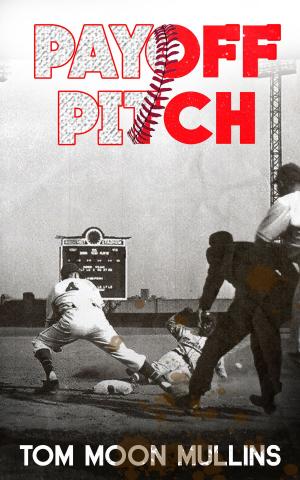Hydrogen
Nonfiction, Travel, Middle East, Egypt, Fiction & Literature, Historical, Romance, Romantic Suspense| Author: | Philip Brebner | ISBN: | 9781843962779 |
| Publisher: | Thames Street Press | Publication: | May 28, 2014 |
| Imprint: | Language: | English |
| Author: | Philip Brebner |
| ISBN: | 9781843962779 |
| Publisher: | Thames Street Press |
| Publication: | May 28, 2014 |
| Imprint: | |
| Language: | English |
Hydrogen: the lightest element, the lifting gas of airships—and highly inflammable.
1982. Lakehurst New Jersey, crash site of the Hindenburg. Alone in a motel room Peter Miller recalls how, as a German ten year old, he stowed away on a Zeppelin, shot down in a bombing raid on London in 1916. The only survivor, he is raised as an English orphan at a school for destitute boys founded by the eccentric Dr Hatropp.
As a Fleet Street journalist, dispatched to Berlin in the Golden Twenties, Peter interviews luminaries such as Einstein and Brecht, and is drawn to two women, Frankie, an unconventional reporter from America, and Anneliese, a German widow. Invited to cover the Graf Zeppelin’s luxury passenger flights to Cairo, an accident leaves him convalescing in Egypt. On his return, he finds a different and frightening Germany.
Blown between politics, loyalties and love in the inter-war years, and entangled in the paranormal events, triumphs and disasters of British and German airships of the time, Peter realizes that he overlooked a simple incident that could have grounded and fulfilled his life. But is it too late?
Author Philip Brebner was born in London, educated in Washington DC and also in England. After studying at the University of Dundee he was awarded a PhD from Glasgow University for his thesis on the ideologies of urban planning in Algeria between 1830 and 1980. Later he lectured at architecture schools in Jeddah and Oporto, before living in Oxford for three years. There, in 'the city of dreaming spires' he wrote his first novel, A Country of Vanished Dreams, which was published by Picador to critical acclaim, and translated.
As well as fiction, he has published in academic journals and in The Independent. To keep the wolves from the door, he taught creative writing for the British Council and dealt in rare rugs and textiles in Istanbul. In 2004 he and a colleague were invited to design the master plan for a major tourism project in Morocco - an idea that, sad to say, the government put on ice.
Hydrogen: the lightest element, the lifting gas of airships—and highly inflammable.
1982. Lakehurst New Jersey, crash site of the Hindenburg. Alone in a motel room Peter Miller recalls how, as a German ten year old, he stowed away on a Zeppelin, shot down in a bombing raid on London in 1916. The only survivor, he is raised as an English orphan at a school for destitute boys founded by the eccentric Dr Hatropp.
As a Fleet Street journalist, dispatched to Berlin in the Golden Twenties, Peter interviews luminaries such as Einstein and Brecht, and is drawn to two women, Frankie, an unconventional reporter from America, and Anneliese, a German widow. Invited to cover the Graf Zeppelin’s luxury passenger flights to Cairo, an accident leaves him convalescing in Egypt. On his return, he finds a different and frightening Germany.
Blown between politics, loyalties and love in the inter-war years, and entangled in the paranormal events, triumphs and disasters of British and German airships of the time, Peter realizes that he overlooked a simple incident that could have grounded and fulfilled his life. But is it too late?
Author Philip Brebner was born in London, educated in Washington DC and also in England. After studying at the University of Dundee he was awarded a PhD from Glasgow University for his thesis on the ideologies of urban planning in Algeria between 1830 and 1980. Later he lectured at architecture schools in Jeddah and Oporto, before living in Oxford for three years. There, in 'the city of dreaming spires' he wrote his first novel, A Country of Vanished Dreams, which was published by Picador to critical acclaim, and translated.
As well as fiction, he has published in academic journals and in The Independent. To keep the wolves from the door, he taught creative writing for the British Council and dealt in rare rugs and textiles in Istanbul. In 2004 he and a colleague were invited to design the master plan for a major tourism project in Morocco - an idea that, sad to say, the government put on ice.















